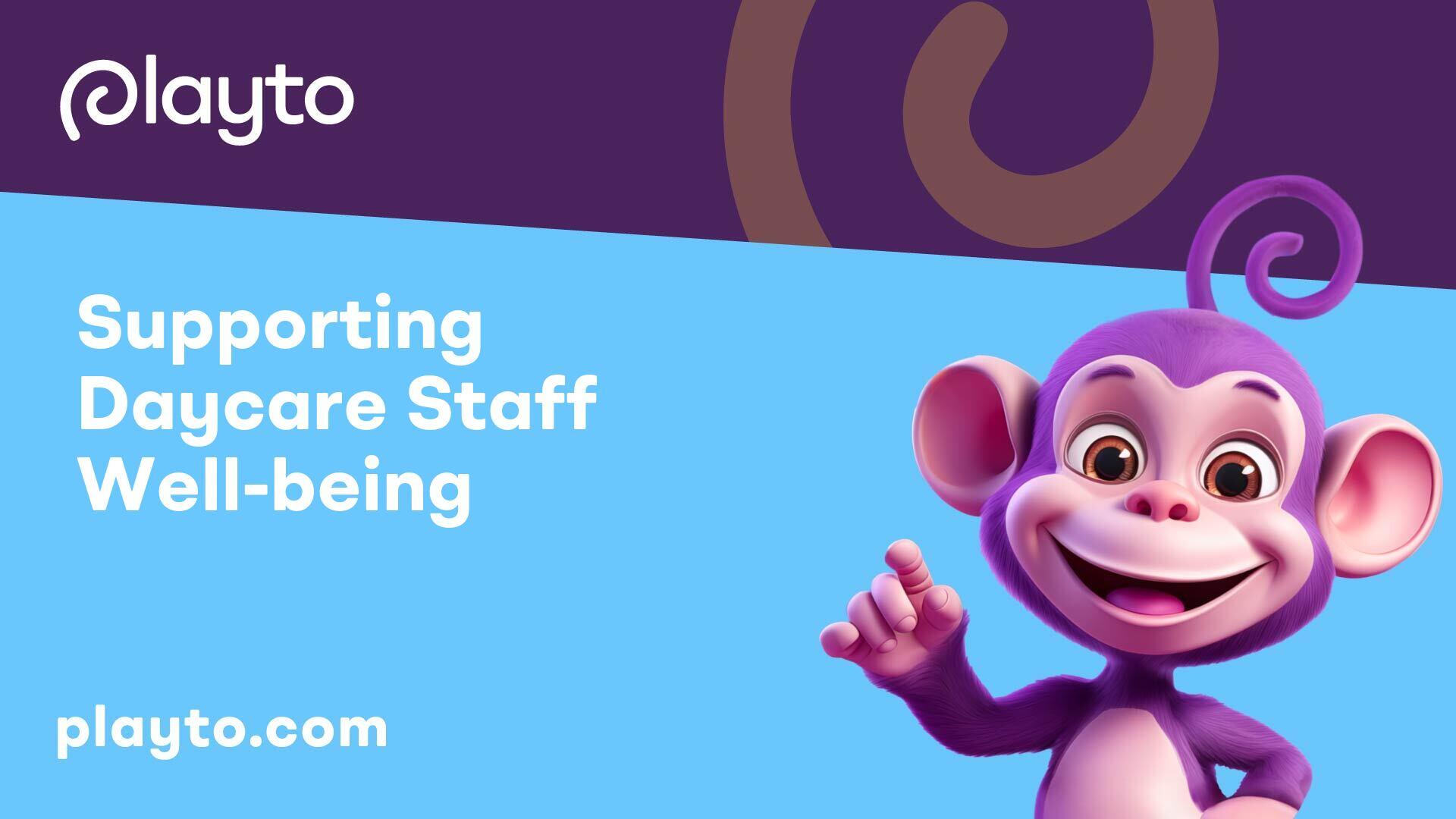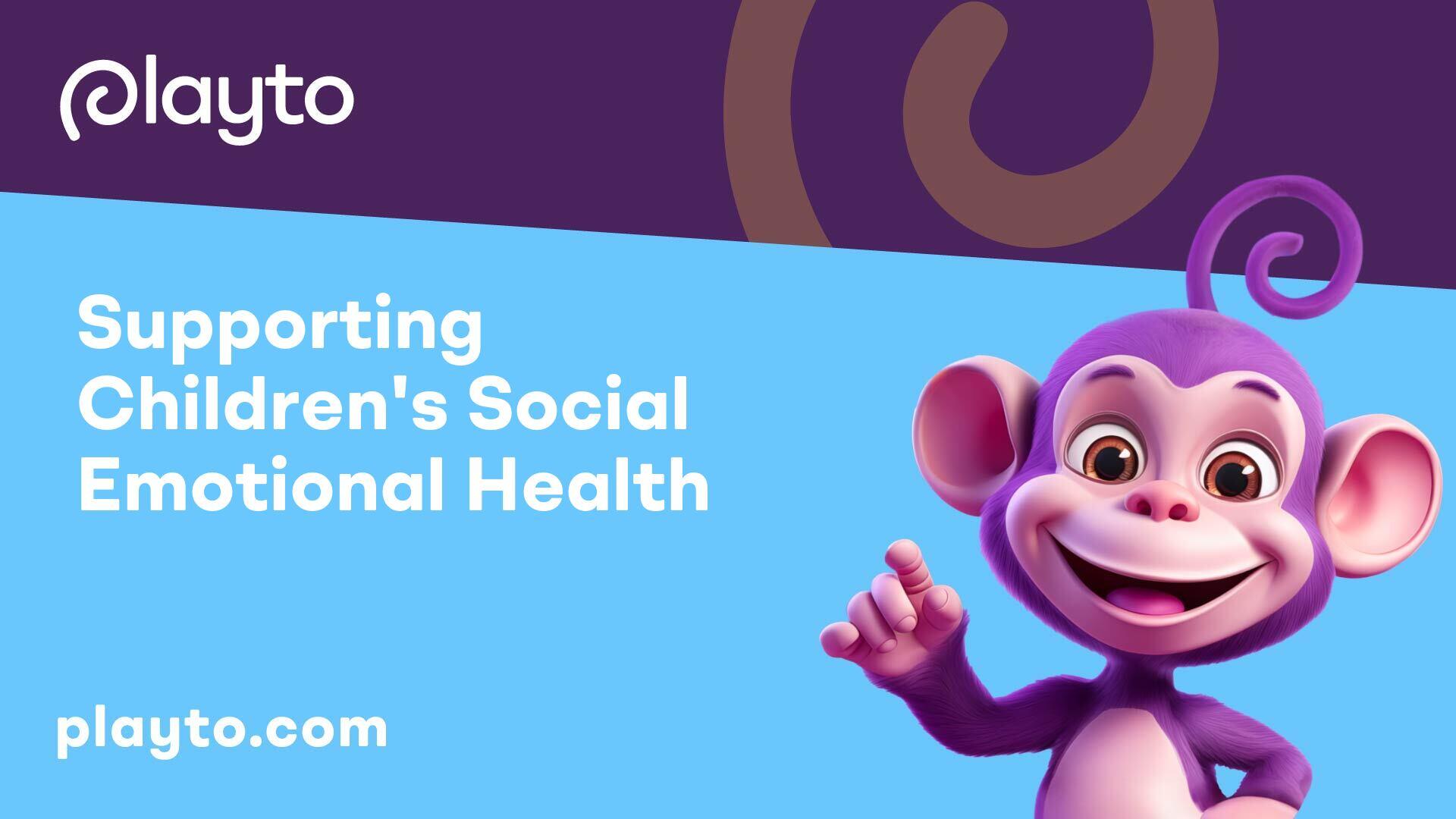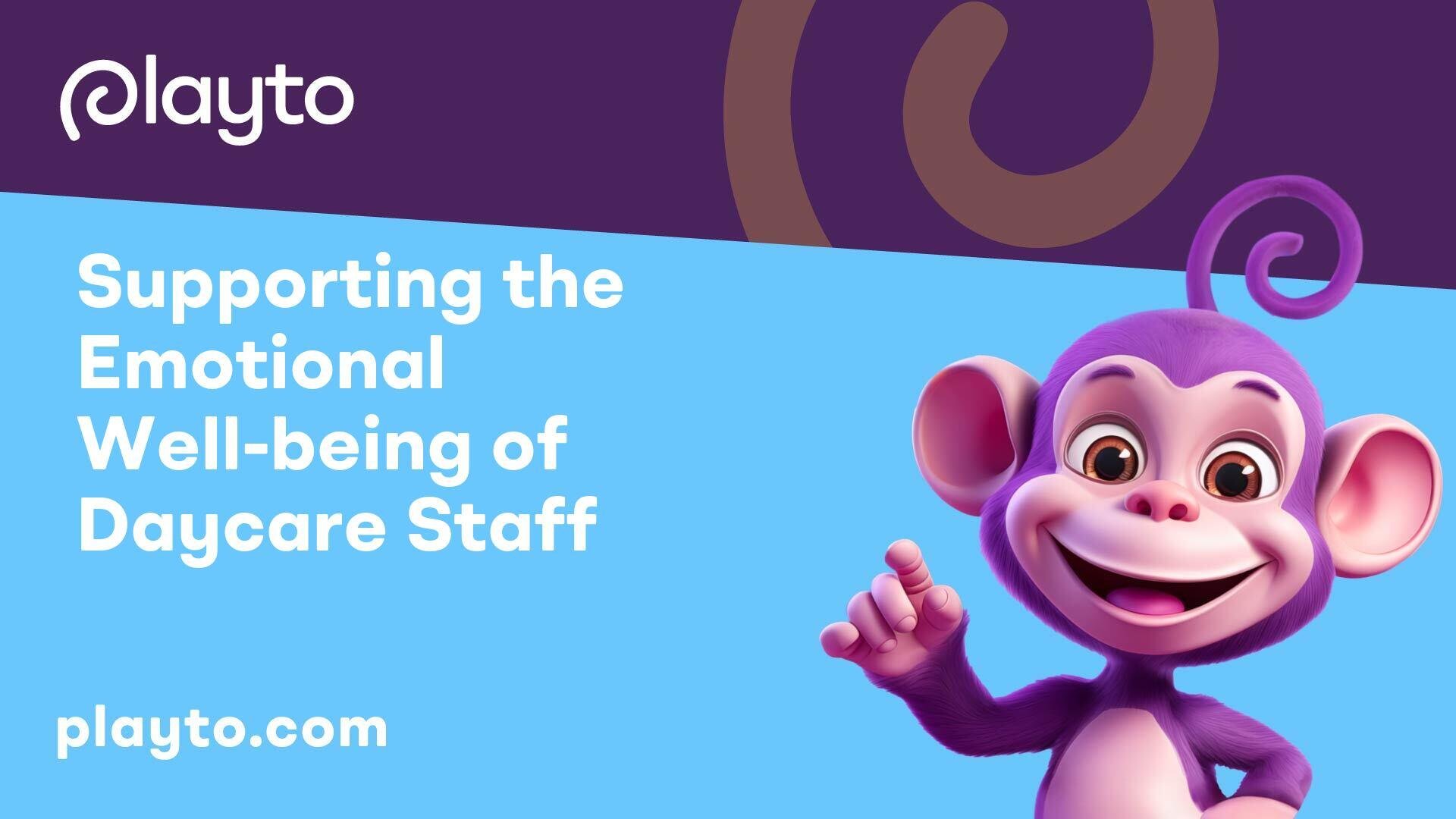
Supporting Daycare Staff Well-being
In the realm of daycare, prioritizing the well-being of staff is paramount for maintaining a positive and nurturing environment for children. This section focuses on two key aspects of supporting daycare staff well-being: promoting physical and mental health and cultivating wellness strategies.
Promoting Physical and Mental Health
Enhancing the emotional well-being of daycare staff begins with promoting their physical and mental health. Research from ECLKC advocates that when daycare programs prioritize the well-being of their staff, it not only benefits the professionals themselves but also improves their ability to care for the children in their charge.
Ensuring that staff members have access to resources for maintaining their physical health, such as regular health check-ups and wellness initiatives, can significantly contribute to their overall well-being. Additionally, promoting mental health through stress management techniques, counselling services, and mindfulness practices can help staff cope with the emotional demands of their role.
Cultivating Wellness Strategies
Creating a culture of well-being within daycare settings involves cultivating wellness strategies that support the emotional health of staff. Programs can develop initiatives that focus on staff wellness, mental health, physical health, and adult immunizations, as suggested by ECLKC.
Platforms like the iPD offer resources such as "Cultivating Wellness: Strategies to Improve Your Health and Well-being" to early childhood staff, enabling them to enhance their wellness and resilience. These initiatives not only benefit the individual staff members but also contribute to a more positive and supportive work environment.
By addressing the physical and mental health needs of daycare staff and implementing wellness strategies that promote a culture of well-being, childcare facilities can create a supportive and nurturing environment for both staff and the children under their care. It is through these efforts that the emotional well-being of daycare professionals can be effectively supported, leading to enhanced job satisfaction and overall staff retention.

Effective Teamwork in Daycare
In a daycare setting, the significance of support, cooperation, and respect among team members cannot be overstated. These elements are essential for fostering a positive work environment and ensuring the well-being of both staff and children.
Importance of Support and Respect
Support, cooperation, and respect among daycare team members are fundamental to achieving common goals and delivering quality care to children. Each member plays a vital role in contributing to the success of the team and the overall well-being of the children in their care [1]. By fostering an atmosphere of mutual respect, team members can effectively collaborate, share ideas, and address challenges together.
Mutual trust among daycare staff is a cornerstone of effective teamwork. When team members trust each other, it creates a sense of security and respect within the team. This trust enables open communication, constructive feedback, and the exchange of innovative ideas, all of which are crucial for maintaining a harmonious and effective child care environment [1].
Communication and Collaboration
Effective communication is key to successful teamwork in a daycare setting. Clear and open communication channels between parents, teachers, and staff members are essential for supporting children's well-being and development. By ensuring that information is conveyed accurately and in a timely manner, daycare teams can work together cohesively towards common goals [1].
Collaboration is another critical aspect of effective teamwork in daycare. Defined roles and responsibilities are essential to ensure that each team member understands their tasks and duties, especially concerning the care and management of children. When team members collaborate efficiently, they can leverage their individual strengths and expertise to provide a nurturing and stimulating environment for the children under their supervision.
By prioritizing support, respect, communication, and collaboration within daycare teams, educators can create a positive and empowering work environment. These elements are not only beneficial for the emotional well-being of daycare staff but also contribute to the overall quality of care provided to young children in daycare settings.

Supporting Children's Social Emotional Health
In the realm of early childhood education, prioritizing the social and emotional well-being of children is paramount. Teachers play a crucial role in nurturing these aspects through practices that focus on building trusting relationships and demonstrating warmth and affection towards the young learners.
Building Trusting Relationships
Establishing trusting relationships with children forms the foundation for their emotional development and learning journey. This involves fostering an environment of warmth, respect, and understanding. When teachers build trust with their students, it creates a safe space where children feel comfortable expressing themselves, asking questions, and engaging in various activities.
Consistent displays of warmth and affection, even during challenging moments or when addressing misbehavior, are essential components of building these relationships. According to NAEYC, such gestures contribute to the development of secure bonds between children and educators. Trusting relationships encourage children to explore, take risks, collaborate with peers, and effectively communicate their thoughts and feelings.
Importance of Warmth and Affection
In early education settings, showing warmth and affection towards children is not just a nicety; it is a fundamental aspect of promoting their well-being. Consistent displays of warmth and affection, regardless of the circumstances, help in creating a positive and nurturing environment where children feel valued and supported.
The act of showing warmth and affection has been linked to positive peer interactions, increased self-esteem, and overall positive social development among children. When educators approach their interactions with warmth and genuine care, it sets a tone of acceptance and encouragement within the classroom, fostering a sense of belonging and emotional security.
Respect, warmth, and affection are powerful tools in the early childhood educator's toolkit, essential for creating an environment where children can thrive emotionally, socially, and academically. By prioritizing these critical elements, teachers can lay a strong foundation for children's social and emotional growth, setting them on a path towards lifelong well-being and success in their educational journey.

Educators' Emotional Well-being Challenges
In the realm of daycare, educators often face significant challenges related to their emotional well-being. Two key aspects that affect educators in this field are stress and anxiety factors, and the subsequent impact on job satisfaction.
Stress and Anxiety Factors
Working in a daycare setting can be emotionally demanding and stressful. A notable percentage of teachers, ranging from 17% to 44%, report experiencing burnout every year, with many opting to leave the profession for less stressful alternatives. Educators who work with children are particularly susceptible to burnout, with common signs including emotional exhaustion, reduced performance, and feeling overwhelmed. This indicates the need for changes or improvements in the work environment to alleviate these stressors.
Moreover, the financial strain of working in childcare adds an additional layer of pressure. Educators typically receive minimal pay and may even need to pay for childcare services for their own children while they work, compounding the financial burden. This combination of emotional stress and financial concerns can take a toll on the overall well-being of daycare staff.
Impact on Job Satisfaction
The stress and anxiety experienced by daycare educators can have a direct impact on their job satisfaction. When educators feel overwhelmed and emotionally exhausted, their morale and motivation to perform optimally can decline. Addressing these emotional challenges is crucial not only for the well-being of the educators themselves but also for the quality of care they provide to the children under their supervision.
Recognizing and addressing the stress and anxiety factors faced by early childhood educators is vital to fostering a positive work environment. By prioritizing the emotional well-being of educators, daycare centers can not only enhance job satisfaction but also create a supportive and nurturing atmosphere for both educators and the children in their care. It is imperative to provide adequate resources and support systems to help educators navigate the emotional challenges inherent in their roles.

Preventing Burnout in Childcare
In the demanding field of childcare, preventing burnout among staff is essential for maintaining a positive work environment and ensuring high-quality care for children. Recognizing the signs of burnout and implementing effective strategies for stress reduction are key components in supporting the emotional well-being of daycare staff.
Recognizing Signs of Burnout
It's crucial to identify the signs of burnout early to address them proactively. Burnout can manifest in various ways, including emotional exhaustion, reduced performance, and feelings of overwhelm. Staff members who experience burnout may exhibit signs of irritability, reduced motivation, and detachment from their work.
Recognizing these signs is the first step in addressing burnout and promoting the well-being of daycare staff. By acknowledging the impact of stress and workload on staff, daycare centers can take proactive measures to create a supportive and nurturing environment.
Strategies for Stress Reduction
Implementing effective strategies for stress reduction is essential in preventing burnout among childcare staff. Creating a supportive and collaborative work environment can significantly reduce stress levels and promote a sense of well-being among employees.
- Promote Teamwork: Staffing classes in pairs or small teams fosters a strong support network among childcare staff, helping to prevent burnout. Teamwork enables staff members to collaborate, share responsibilities, and provide mutual support [2].
- Clear Shift Times: Providing clear and consistent shift times for childcare staff can reduce stress and uncertainty. Unclear or changing shift schedules can contribute to increased anxiety and fatigue among employees. Establishing reliable schedules helps create a sense of stability and predictability in the work environment.
- Show Appreciation: Recognizing and appreciating the hard work of daycare staff is essential in preventing burnout. Showing gratitude for their efforts, acknowledging their contributions, and highlighting their achievements can boost morale and motivation. When staff members feel valued and appreciated, it fosters a positive work culture and reduces the risk of burnout.
By implementing these proactive strategies for stress reduction and creating a supportive work environment, daycare centers can help prevent burnout among staff and promote the emotional well-being of childcare professionals. Prioritizing the mental health and needs of daycare staff is essential in delivering high-quality care and fostering a positive work environment for all.
Balancing Work and Parenting
Efficiently navigating the delicate balance between work responsibilities and parenting obligations is a significant challenge faced by educators in the daycare setting. The constant juggling act can lead to heightened stress levels and a sense of overwhelm among childcare professionals.
Challenges Faced by Educators
Educators in daycare settings often find themselves grappling with the dual roles of caregiver in both a professional and personal capacity. This dual responsibility can result in internal conflicts and self-doubt, as educators may question their ability to excel in both realms simultaneously. The emotional toll of managing the needs of children at work while also attending to the needs of their own families can be emotionally draining and physically demanding.
Financial Strain and Work-life Balance
One of the primary challenges that exacerbate the work-parenting balance for daycare educators is the financial strain associated with the profession. The low pay levels in the early childhood education sector, coupled with the requirement for educators to enroll their own children in daycare, can create a significant financial burden [3]. This financial pressure adds an extra layer of stress and anxiety to educators, impacting their overall well-being.
Moreover, the demands of paperwork and administration within the childcare environment often spill over into educators' personal lives. The need to bring work-related tasks home in order to meet deadlines and administrative requirements further blurs the line between work and personal time, disrupting their work-life balance and contributing to increased stress levels.
As educators strive to find equilibrium between their professional commitments and parental duties, it is crucial to acknowledge and address these challenges to ensure their emotional well-being remains intact. Implementing strategies to support daycare staff in managing these challenges is essential for fostering a positive work environment and promoting overall wellness among educators.
Addressing Paperwork Burden
Managing paperwork and administrative tasks in the daycare setting is a significant challenge that impacts the emotional well-being of educators. The demands of paperwork often result in educators having to take work home, affecting their work-life balance and increasing stress levels. Teachers in the childcare sector reportedly spend approximately 50% of their time on paperwork, which interferes with their ability to spend quality time with the children they care for.
Impact on Educators
The burden of paperwork not only consumes valuable time that could be spent engaging with children but also adds to the mental load of daycare staff. Constantly juggling paperwork alongside caregiving responsibilities can lead to feelings of overwhelm, frustration, and a sense of being disconnected from the primary purpose of their work – nurturing and educating young minds.
Educators may experience heightened stress levels, heightened anxiety, and emotional exhaustion due to the persistent pressure of managing paperwork alongside their core responsibilities. This can result in decreased job satisfaction and a negative impact on their overall well-being and mental health.
Work-life Balance Considerations
The imbalance caused by excessive paperwork can significantly disrupt the work-life balance of daycare educators, affecting both their personal life and professional commitments. Taking work home to complete paperwork can encroach upon much-needed personal time, leading to feelings of burnout and exhaustion.
To address the paperwork burden and promote a healthier work-life balance, daycare centers should consider implementing strategies to streamline administrative processes, reduce unnecessary paperwork, and provide adequate support for educators. Providing clear shift times for staff can help reduce uncertainty and allow for better planning, ultimately lowering stress levels and preventing burnout.
Furthermore, creating a culture of teamwork and collaboration within daycare centers, as well as implementing interventions like the Wellbeing First program to improve emotional well-being, can help alleviate the burden of paperwork on educators. By fostering a supportive work environment and implementing effective strategies to manage administrative tasks, daycare centers can better support the emotional well-being of their staff and ensure a more positive and fulfilling work experience for all involved.
Improving Educator Well-being
Enhancing the well-being of daycare staff is essential for creating a supportive and positive work environment. Implementing support programs and interventions, as well as fostering a culture of well-being, are key strategies to support the emotional well-being of daycare staff.
Support Programs and Interventions
To address the emotional well-being of daycare staff, programs can develop wellness strategies that encompass various aspects of staff wellness. These initiatives focus on mental health, physical health, and adult immunizations to ensure that educators are supported in all aspects of their well-being.
One notable program, Wellbeing First, is dedicated to enhancing the resilience of individual teachers and implementing policies and procedures to advance the overall well-being of early childhood educators. This program offers stress management toolkits, professional development opportunities, group processing time, and monthly consulting sessions to provide comprehensive support to educators.
Creating a Culture of Wellbeing
In addition to structured programs, creating a culture of well-being within daycare settings is crucial for nurturing the emotional well-being of staff. Teamwork plays a vital role in fostering a supportive environment. By assigning staff in pairs or small teams, a strong support network can be established among childcare professionals, helping to prevent burnout and promoting a positive work atmosphere [2].
The demanding paperwork and administrative tasks in the early childhood sector often lead educators to bring work home, impacting their work-life balance and increasing stress levels. Childcare providers face various stressors, including physical demands, limited access to food during work, and safety concerns outside the classroom. By addressing these challenges and creating a supportive culture, daycare centres can significantly improve the well-being of their educators.
By implementing support programs, interventions, and fostering a culture that prioritizes well-being, daycare centres can create a nurturing environment that supports the emotional health and overall well-being of their staff, ultimately benefiting both educators and the children under their care.
References
[1]: https://www.vancopayments.com/child-care/
[2]: https://www.jackrabbitcare.com/blog/
[3]: https://www.theempowerededucatoronline.com/
[4]: https://education.virginia.edu/news-stories/
[5]: https://eclkc.ohs.acf.hhs.gov/mental-health/article/promoting-staff-well-being
